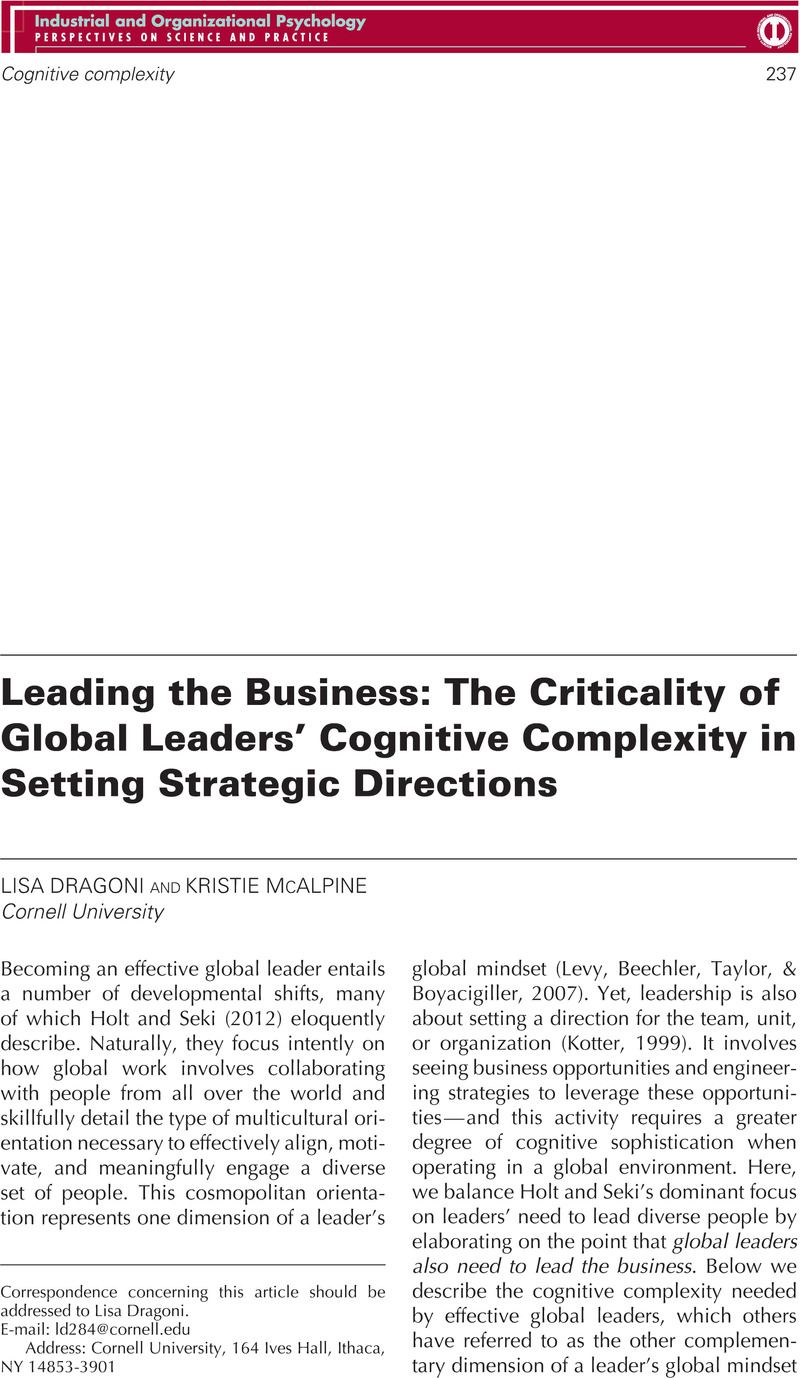Crossref Citations
This article has been cited by the following publications. This list is generated based on data provided by Crossref.
Seki, Kyoko
and
Holt, Katherine
2012.
Global Leadership to Transform the World.
Industrial and Organizational Psychology,
Vol. 5,
Issue. 2,
p.
248.
Hackett, P. Thomas
Lemoine, Pamela A.
and
Richardson, Michael D.
2017.
Encyclopedia of Strategic Leadership and Management.
p.
270.
Kossek, Ellen Ernst
Huang, Jason L.
Piszczek, Matthew M.
Fleenor, John W.
and
Ruderman, Marian
2017.
Rating Expatriate Leader Effectiveness in Multisource Feedback Systems: Cultural Distance and Hierarchical Effects.
Human Resource Management,
Vol. 56,
Issue. 1,
p.
151.
Kiß, Helena
and
Sulíková, Rozália
2021.
Developments in Information & Knowledge Management for Business Applications.
Vol. 376,
Issue. ,
p.
271.





